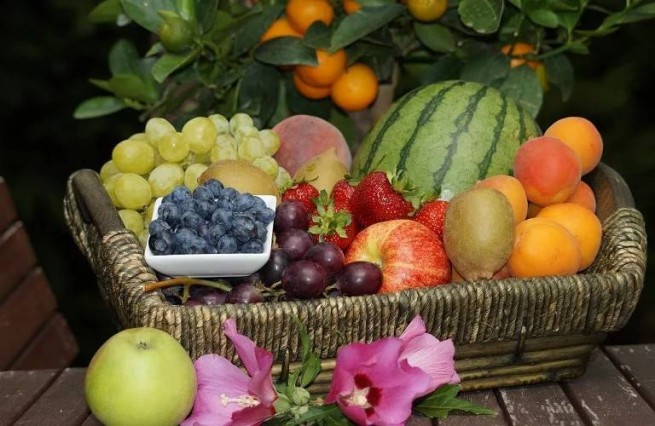The “dishonorable premium” for the nightmarishly high fruit prices goes to Greece, according to Eurostat data and June’s consumer price index.
Expensiveness persists mercilessly throughout July, making watermelons, melons, apricots and cherries a mid-summer luxury item for the average consumer and low-income households.
According to the European Statistical Office, in June Greece recorded the highest monthly increase in fruit prices, 24.5%, in all of Europewhile the second largest increase was recorded in Estonia and amounted to about 7.2%, while in Cyprus the monthly price change was negative (-6.7%).
And based on the data of the Hellenic Statistical Office, the increase in fruit prices in June compared to May was “measured” at even higher rates, reaching 28.8%.
As can be seen from the current prices, although they have fallen compared to the 15-day period, inflation continues to impoverish the household budgets of citizens in July, when there is no general decline in food prices (and is not expected). In the period from April to June 18, the increase in prices amounted to about 11.1%.
“Golden” summer fruits
watermelons are currently sold in street markets and supermarkets for up to 1.09 euros per kilogram, with prices starting at 0.60 euros, and in the late afternoon, closer to the closing of street markets, they can drop to 0.50 euros.
Comparing with the previous year consumer price has more than doubled and ranged from 0.30 to 0.50 euros per kilogram. However, this year the wholesale price has more than doubled compared to 2022: from 0.25 euros to 0.55 euros per pound, according to statistics
The same picture with melons. Yesterday, Thursday 27/7, at the street market in Chalandri, melons, depending on the quality, cost from 0.80 to 1.20 euros per kilogram, while prices in supermarkets on the same day reached 1.30 euros per kilogram. Last year, wholesale melon prices were 40% lower than this year, sellers said after receiving complaints from consumers about counterpricing.
Cherry is also literally out of reach, although prices have fallen compared to previous weeks. The price of a kilogram ranges from 3.5 to 5 euros on the market, from 6 euros 15 days ago, and in organized retail chains it reaches 7 euros, starting from 5.28 euros.
With apricots, the situation is similar, and peaches are sold at relatively better prices for a summer product, i.e. from 1 to 2 euros per kg.
However, due to continued high prices for agricultural products and combined with the high cost of living, consumption is expected to fall to 8% this year.
Greek consumers began to turn into … Germans, in terms of the mentality in terms of shopping. Zealous Germans bought ¼ watermelon, 2 tomatoes and 3 peaches. Now the Greeks, instead of buying a whole watermelon, prefer half, and often a quarter. Other vegetables and fruits began to be taken … by the piece, in order to austerity.
Whose fault
Producers raise prices for agricultural products, they say, because of … climate change. Especially this year, when spring was not spring, and heavy rains and hail destroyed most of the early harvest of cherries, apricots, peaches, watermelons and melons. Accordingly, the shortage of products causes an increase in prices (the supply-demand balance changes).
Already in other Mediterranean countries, such as Italy and Spain, the effects of climate change have become visible in the primary sector. The blow to olive oil production is perhaps the biggest piece of evidence.







More Stories
The Greek Tax Administration sent out "letters" 20,000 taxpayers who "forgot" declare income
Tax returns 2024: which income is exempt or subject to special tax
Tax returns: platform open for legal entities